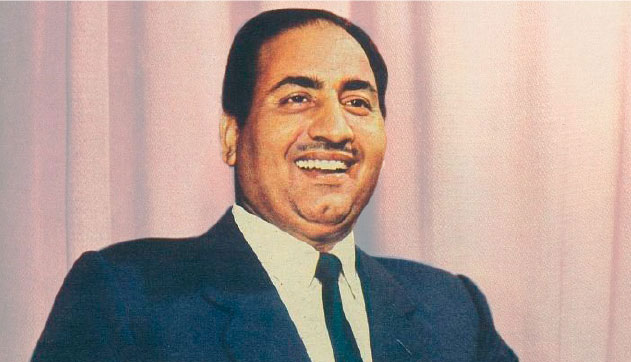
Can a single song capture the sheer magnificence of Hindi film music? Listen to Man tarpat Hari darshan ko aaj from the 1952 film Baiju Bawra, scripted by Shakeel Badayuni, composed by Naushad, sung by Mohammad Rafi. A stunning symphony of voice, word and image, it is Bollywood’s best bhajan, put together by three Muslims!
Another Rafi masterpiece from the film is an international classic. Soaked in devotional ardour, Ae duniya ke rakhwale rises to a crescendo with the concluding word Rakhwale being repeated a few times, the voice soaring higher and higher!
Rafi’s career soared too, even before Baiju Bawra. He was the lord of the 1950s and 1960s. “He gave playback singing a new meaning,” says Javed Akthar. Naushad was asked in a radio interview during the 1990s: “If you were to compose the best music of your life now, what would you do? He replied: “I would pray to Allah to send back Rafi for an hour.” Manna Dey regarded Rafi as an institution by himself, a gharana.
Why was Rafi the gold standard for Bollywood music? The first reason is of course his voice — awesome in reach, expressiveness and malleability. “Rafi was peerless with voice modulation,” said music director Pyarelal. “He knew what to stress, how to stress, where to pause.” Through his voice, Bollywood heroes appealed to their sweethearts in many moods — pleading, cajoling, wooing, fantasising, lauding, celebrating, agonising, sorrowing. But Rafi also erupted in flamboyance as a junglee, janwar, budtameez, loafer, bluffmaster.
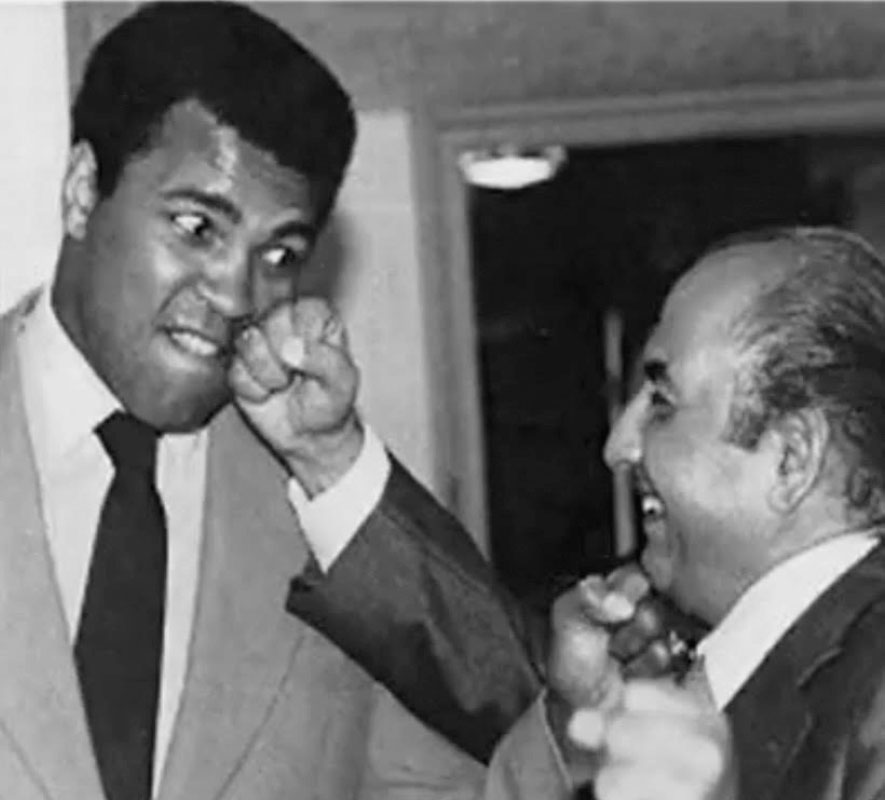
Another reason for Rafi’s appeal is his ability to emote. He sounded like Dilip, Shammi Kapoor, Rishi Kapoor or Johnny Walker when he sang for them. He didn’t change his voice but his style, as SPB pointed out.
The Rafi journey
Mohammad Rafi (the exalted one) was born in Kotla Sultan Singh village near Amritsar on Dec 2, 1924. Rafi’s father Hajji Ali was a cook — his culinary skills were much in demand at social and religious events. In 1926, Ali’s family of 10 moved to Lahore, where Hajji Ali set up a dhaba and Rafi’s brother Mohammad Deen set up a barber shop.
As a young boy, Rafi was drawn to the songs of a wandering fakir. He would sing the same songs later at his brother’s barber shop. His brother’s friend Hameed was so taken up with Rafi that promoting him became his own mission.
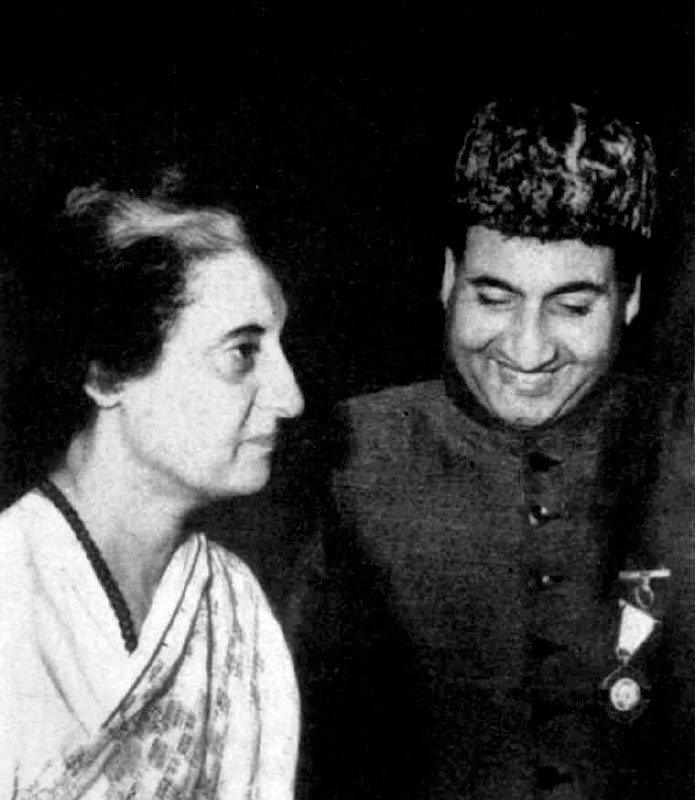
When he was 13, Rafi sang at a function starring K L Saigal, when a power breakdown delayed the legend’s arrival. The boy sang without a mike, and the audience was astonished at the melody and voice control. Music composer Shyam Sundar was present; he told Rafi and Hameed to see him in Bombay.
In 1944, Hameed and Rafi (then 20 years old) moved to Bombay. They took up a tiny flat in Bhendi Bazar, and spent their time knocking on the doors of music composers. Those were tough times. The two sometimes followed a rail track to their destination, since there was no money for a bus or train ticket. Roasted gram through the entire day was their only food.
With Shyam Sundar’s help, Rafi and Hameed managed to meet Naushad’s father in Lucknow and get a one-line letter of recommendation to the famous composer. It said “Naushad, if you find this boy worthy, please give him a chance”. That one line became a passport to Bollywood.
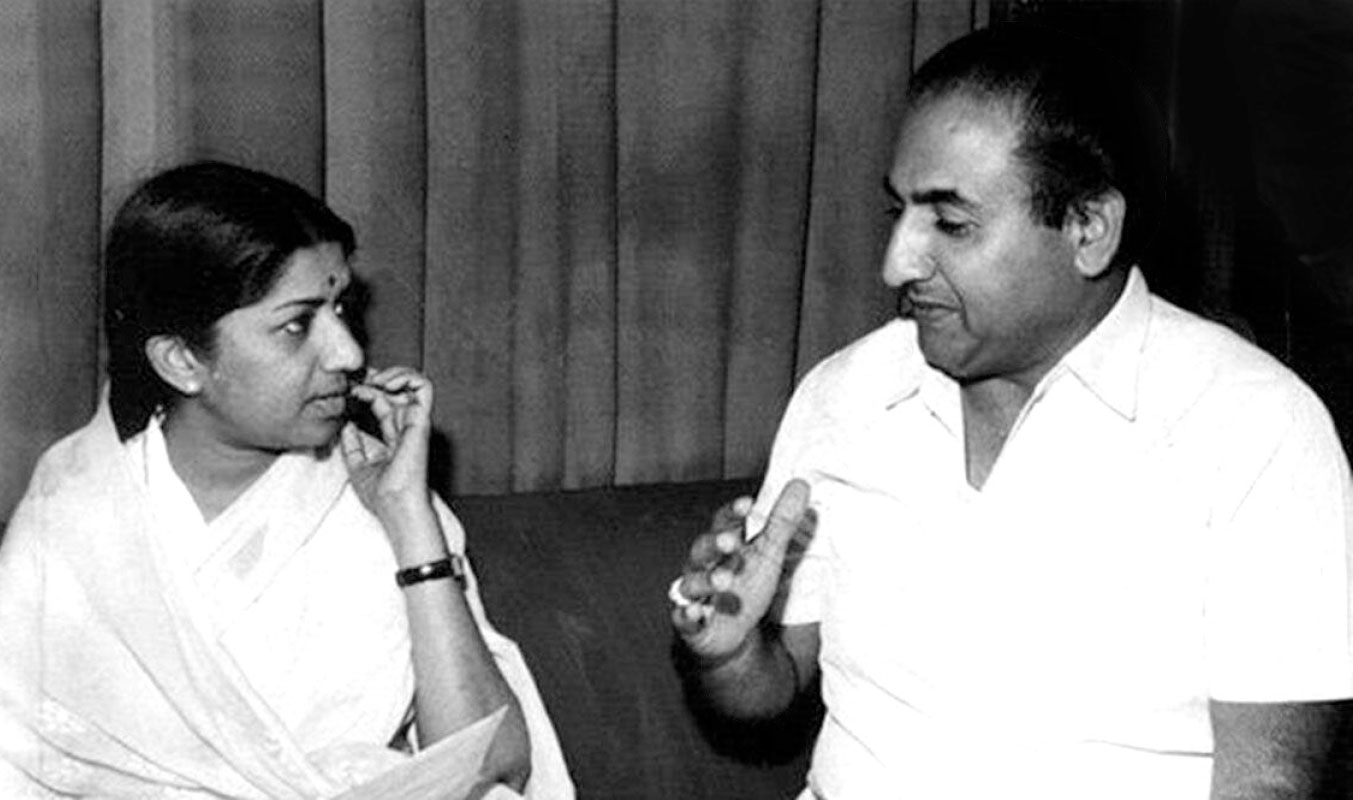
But the road to recognition was long and progress was slow. At one point, Rafi, who lived in Bandra in a crowded locality, had to go all the way to Marine Drive at 4.30am where he did his riyaz.Singer Suraiya heard him, was mesmerised by his voice, and offered him a room in her house to practice!
Rafi’s first super hit was the duet with Noor Jehan — Yahan badla wafaa ka (in Jugnu, 1947). In 1948, Gandhiji’s assassination led to the deathless song Suno suno yeh duniyawalo babu ki yeh amar kahani rendered by Rafi. (Lyric by Rajinder Krishan, music by Husnlal Bhagatram.) Pandit Nehru invited Rafi to sing the song at his residence. On Independence Day, 1948, the Prime Minister presented Rafi with a medal for his song. The following year, Suhani raat dhal chuki (Dulari,1949), a haunting song of romantic yearning, captivated one and all.
Rafi’s fame skyrocketed during the 1950s and 1960s. Deedar (1951) was the first of several films in which Dilip Kumar’s charisma, Naushad’s genius and Rafi’s magic came together. Meri kahani bhoolanewale and Hue hum jinke liye barbaad from this film were masterpieces of heart-wrenching melody. With the 1952 Baiju Bawra, Rafi became the uncrowned melody king of Bollywood. He was a race horse that never slackened its pace. “Why don’t you fall ill sometimes so that others can get a chance,” Mukesh once told him light-heartedly.
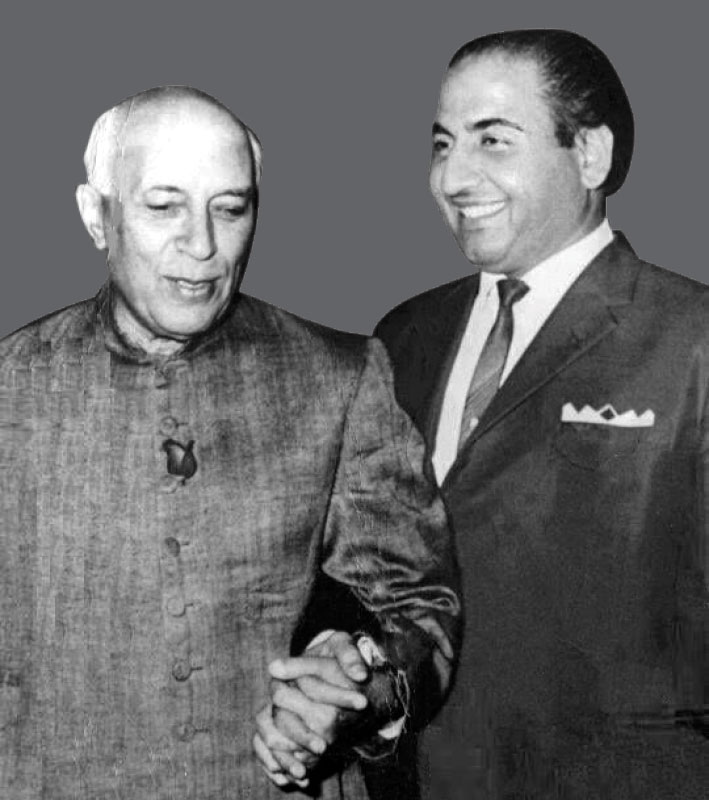
One could write a whole book on how Rafi’s monumental talent was behind the success of the top 100 Bollywood actors, lyricists and composers. Let me confine myself to just one actor.
Shammi Kapoor suffered 17 flops before scoring his first hit in Tumsa Nahin Dekha (1957) on the back of three Rafi songs. If Rafi’s high-voltage voice was mesmeric, Shammi’s energy and vitality were infectious. In Junglee, Shammi cast a spell on young India through Rafi’s magical voice, with two contrasting songs for Saira Banu — the high-pitched Chahe koyi mujhe junglee kahe, yahoo! and the sweetly imploring Ehsan tera hoga mujh par. Rafi sang 190 songs for Shammi Kapoor.
Rafi sang 5,063 songs in his career, including 4,225 Hindi film songs. The honours he won included a Padma Shri in 1967, a national film award in 1977 as best singer, and six Filmfare awards. These were for the songs Chaudhvin ka chand, Teri pyaari pyaari soorat ko, Chahunga main tujhe saanj savere, Baharon phool barsao, Dil ke jharoke mein, Kya hua tera wada.
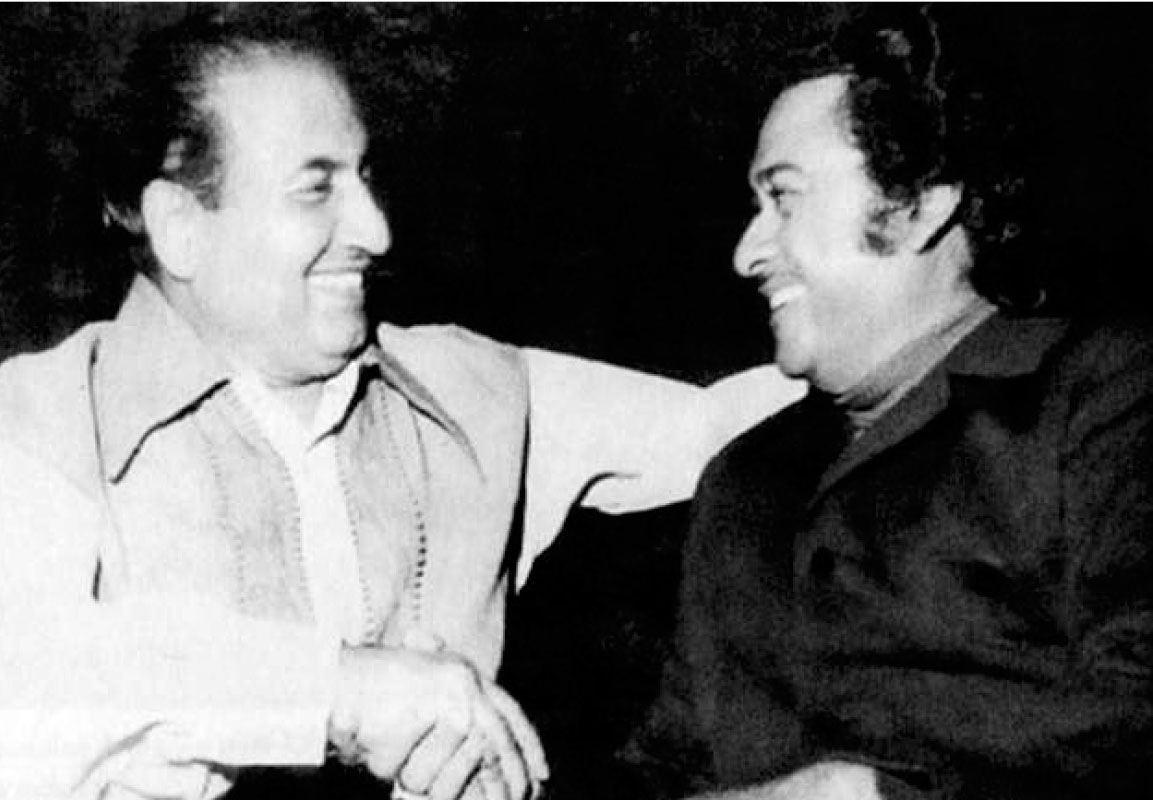
In 2001, Rafi was declared as “Best Singer of the Millennium” by Hero Honda and Stardust magazine.
The sole setback in Rafi’s career was during the early 1970s, when he was displaced as Bollywood’s top singer by Kishore Kumar. The Rajesh Khanna phenomenon swept Bollywood, and led to most producers and composers making a beeline for his favourite, Kishore. Rafi recovered his nous during the latter half of the decade, but he was felled by a heart attack in 1980.
Here are just a few of my Rafi favourites.
Romantic songs:
- Chaudhvin ka chand ho (1960, Chaudhvin Ka Chand. Composer: Ravi)
- Abhi na jao chod kar (1962, Hum Dono, Jaidev)
- Mere Mehboob tujhe (1963, Mere Mehboob, Naushad)
Reflective songs
- Jinhe naaz hai hind par woh kahan hai (1957, S D Burman, Pyaasa)
- Main zindagi ka saath nibhata chala gaya (1961, Hum Dono, Jaidev)
- Man re tu kahe na dheer dharey — (1962, Chitraleka, Roshan)
Sad songs:
- Toote hue khwabon ne (1958, Madhumati, Salil Chowdhry)
- Dekhi zamane ki yari (1959, Kagaz Ke Phool, S D Burman)
- Din dhal jaaye (1965, Guide, S D Burman)
Some Rafi anecdotes
- Rafi loved O P Nayyar’s racy, catchy, peppy tunes, which he rendered with gusto. Rafi would sometimes hum Yun to humne lakh sangeetkar dekhe hain, OP Nayyar sa nahin dekha. But in 1966, a rift broke between the two. Rafi came late for a recording of Sawan Ki Ghata, delayed by the recording for a Shankar-Jaikishen movie. The reason rather than the delay angered Nayyar. He cancelled the recording, and said he didn’t need Rafi any more. They didn’t work together for three years, but Rafi called on Nayyar one day and the two made up.
- SD Burman and Rafi made magic in numerous films. It was an SD Burman Nite that reunited Lata and Rafi in 1967 at the Shanmukhananda Hall in Bombay, after the two legends had stayed apart for four years. Nargis and Madan Mohan were the two emcees at a live music show. They announced a “great surprise”. Lata and Rafi entered the stage from opposite sides, to thunderous applause.
- Composer Omi (from the Sonik-Omi pair) recorded a qawwali with Rafi and Asha for the film Dharma in 1973. Omi wanted the song re-recorded, and Rafi was upset. But Rafi visited Omi next morning with a pair of huge US-made speakers and asked Omi to listen on the speakers to the qawwali recorded the previous night. Result: no re-recording. “These speakers are for you,” Rafi said. His fee for the song was ₹3,000 and he was gifting Omi speakers worth ₹20,000! “That’s Rafi for you,” said Omi.
Live shows — in India and abroad
Rafi was a teetotaler; his intoxication was mass adulation! His live shows began in 1960, with a tour of East Africa.
He accepted with alacrity a request to entertain jawans of India’s Border Security Force in 1962 at the India-China border. Dilip Kumar was a partner in this event. Dilip says that the day before the show, Rafi lost his voice because of a severe cold and a throat infection. Dilip Kumar kept giving Rafi his own concoction of a ginger and honey drink. And it worked! On the morning of the show, Rafi found that his throat had cleared. The show was a rousing success.
A 1977 anecdote. Shashi Kapoor had just re-started Prithvi Theaters. He organised two music shows on successive evenings in Siliguri, West Bengal, to honour the memory of his father Prithviraj Kapoor. Rafi sang on the first evening, to a tumultuous reception. Amitabh Bachhan, Rekha, Randhir Kapoor and Shabana Azmi also took part.
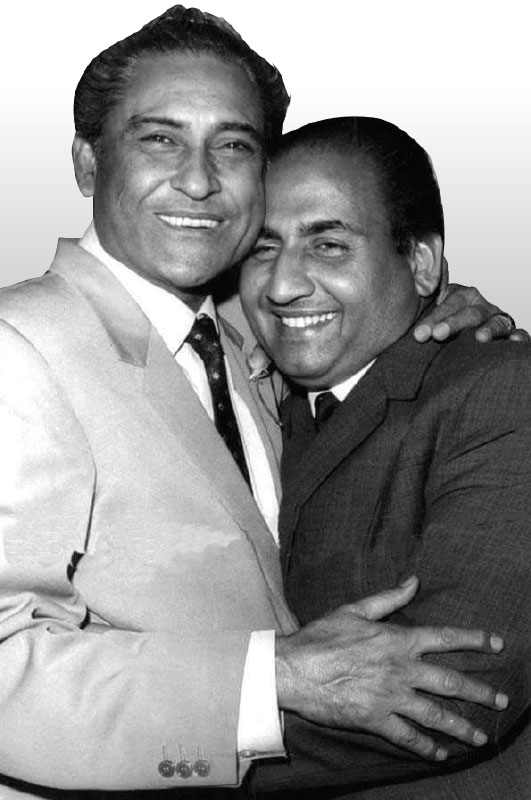
The second evening’s show was to be performed by Sulakshana Pandit and her team. Rafi left that morning for the airport, but the organisers were hit by a bombshell. Sulakshana would be unable to come. There was panic, because all tickets had been sold. Amitabh rushed to the airport, and persuaded the astonished Rafi, already in the aircraft, to exit. He did a second show, the audience was delighted. They couldn’t have enough of Rafi.
Personal life
Rafi had seven children — four sons and three daughters. Shahid, the only surviving son, runs a garment business in Mumbai and stays at Rafi Villa. One room in the house is a Rafi museum, containing Rafi books, photographs and other memorabilia.
Rafi didn’t want his children to take up singing or even be a part of the film industry. He preferred that they do business. He sent all his four sons to London.
He was austere and reserved in his personal habits — he avoided liquor and cigarettes and rarely socialised. His one pronounced weakness was food. He was fond of sweets, and wife Bilquiz had to restrain him because he was a diabetic. He usually took to work a few flasks of special tea made by Bilquiz — milk boiled with a mixture of almonds, cloves and cardamom.
His hobbies were carrom, badminton and kite-flying. A fan of boxer Mohammad Ali, Rafi wanted to meet the famous pugilist when he was in Kentucky in 1979 during a multi-city concert tour. The great boxer heard that a famous singer from India was very keen to meet him. Ali responded and visited Rafi at his hotel. At Ali’s suggestion, photographs were taken of the singer and the boxer punching one another. Rafi was fond of attractive watches and stylish cars. A blue Audi that he had bought in London was his favourite car.
His generosity was legendary. A friend recounts that when a beggar asked him for money, Rafi gave him all the money he had. “Don’t you count the money before you give it,” asked the friend. “When God doesn’t count what he showers on me, why should I count what I give others,” he remarked.
On July 30, 1980, Rafi suffered a massive heart attack, and passed away at 10.25pm The burial was organised in pouring rain. Thousands of fans flooded the streets to take part in the funeral procession from Bandra to the Santa Cruz kabristan, while flowers were showered from balconies.
A shrine for Rafi stands in Birmingham, England. A fan in Ahmedabad has built a temple-cum-museum for him in his own house. But “Rafi is enshrined in the hearts of millions of his fans,” says Javed Akhtar.
Editor’s pick
- Chaudhvin ka chhand ho
- Abhi na jaon chhod kar
- Mein zindagi ka saath nibhata chala gaya
- Baharo phool barsao
- Mere mehboob tujhe meri mohabbat ki kasam
- Khoya khoya chhand
The author is a senior journalist and a member of the Rotary Club of Madras South.





